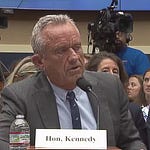The real truth behind the Ukraine-Russia war is not found in the daily headlines, nor in the choregraphed soundbites of politicians whose interests are more often aligned with arms manufacturers than with peace. It is buried under layers of narrative control, geopolitical strategy, and historical amnesia. The mainstream media has fed the public a simplified story: Ukraine good, Russia bad. But the deeper context reveals a far more complex and uncomfortable reality.
Jeffrey Sachs, a respected American economist and advisor to global institutions, has consistently warned that the Ukraine war is not merely a struggle for sovereignty or democracy, but the culmination of decades of Western overreach and provocation. Sachs, who served as Special Advisor to the UN Secretary General for over 17 years and is currently a professor at Columbia University, has publicly argued that the war could have been prevented if the West had honored its past commitments and truly sought diplomatic solutions.
One of the key points Sachs makes is about NATO’s eastward expansion after the fall of the Soviet Union. Despite verbal assurances to Russian leaders in the early 1990s that NATO would not move "one inch eastward," the alliance added member after member, pressing up against Russia’s borders. This, Sachs argues, was viewed by Moscow not as a sign of peace and cooperation, but as an existential threat. For years, Russian leaders, including Yeltsin and later Putin, voiced their objections. Those warnings were ignored.
In 2014, the situation escalated dramatically when a Western-backed uprising in Kyiv led to the ousting of Ukraine’s elected president, Viktor Yanukovych. This event, hailed in Western capitals as a democratic revolution, was seen in Russia and parts of eastern Ukraine as a coup. It triggered the annexation of Crimea by Russia and the outbreak of civil war in the Donbas region. Sachs and other analysts believe that the West’s involvement in Ukraine’s internal politics only added fuel to an already volatile situation.
Then came the push to bring Ukraine into NATO, a red line repeatedly articulated by Russian leadership. In the months leading up to the 2022 invasion, the United States and its allies refused to offer security guarantees that might have averted the crisis. Instead, military support and rhetoric intensified. When Russia finally launched its invasion, the world was told it was unprovoked. But according to Sachs, and other prominent voices like John Mearsheimer and Noam Chomsky, it was the tragic and predictable result of years of reckless policy.
Now, with the war well into its third year, Western governments continue to pour billions of dollars into the conflict. Arms manufacturers are seeing record profits. Politicians on both sides of the Atlantic are calling for more weapons, more escalation, and more sacrifice, just not from themselves. Meanwhile, Ukrainian cities are being destroyed, hundreds of thousands have died, and the world teeters closer to a direct NATO-Russia confrontation.
The truth is not about defending one government over another. It’s about acknowledging how power operates in the shadows, how peace was an option, and still might be, if only those in charge were willing to challenge the dogmas of empire and the profits of endless war. The Ukraine conflict is not just a regional crisis. It is a mirror reflecting the consequences of broken promises, weaponised democracy, and the deliberate suppression of alternative voices like that of Jeffrey Sachs. If we are to find a path forward, it begins by listening to those who have dared to tell the story that mainstream outlets refuse to touch.
@GGTvStreams If you think my voice should be heard louder then PLEASE support by becoming a paid subscriber. I have minimal overheads, no sponsors to sell myself or soul to, no bosses who tell me what to write (or NOT write), or staff I have to pay. I’m here for your raw, straight, and dedicated analyses. Your support is appreciated. Thank you.
buymeacoffee.com/ggtv














Share this post